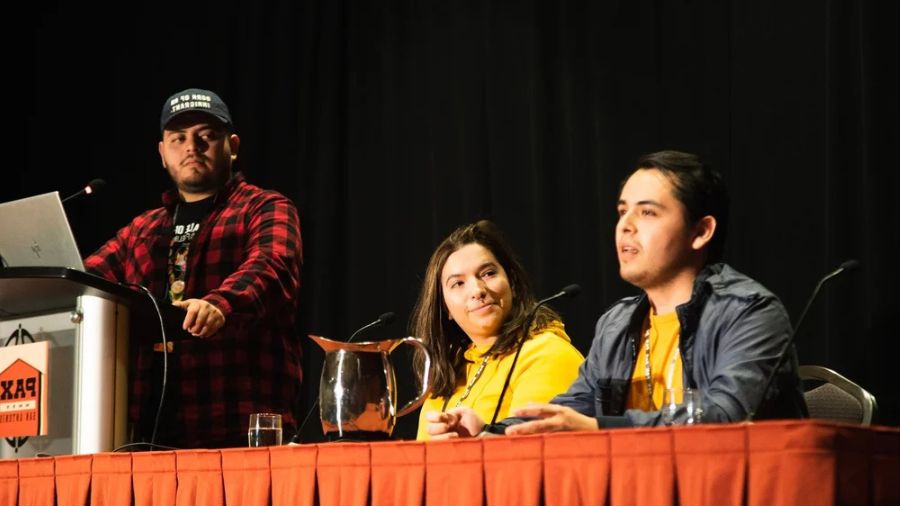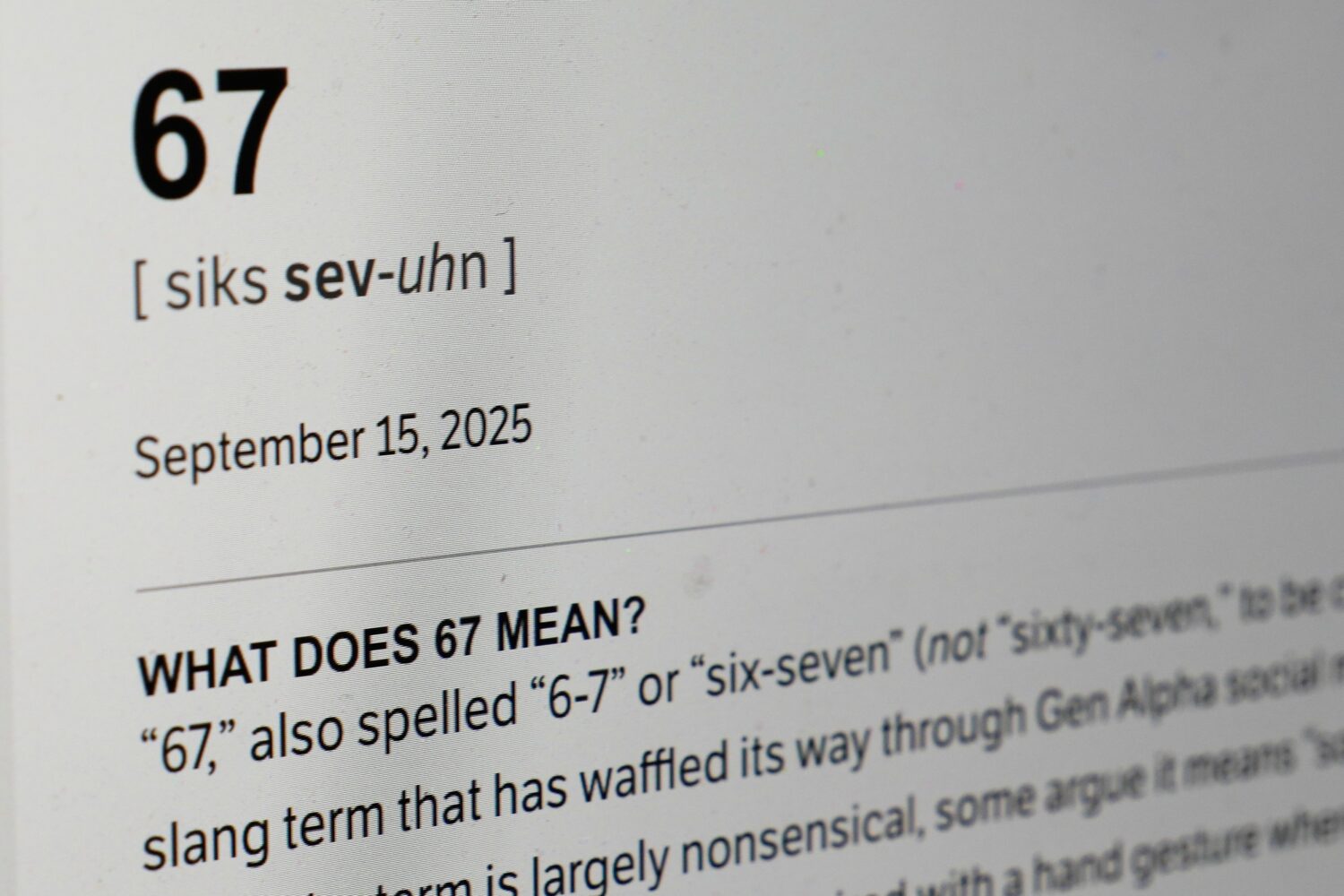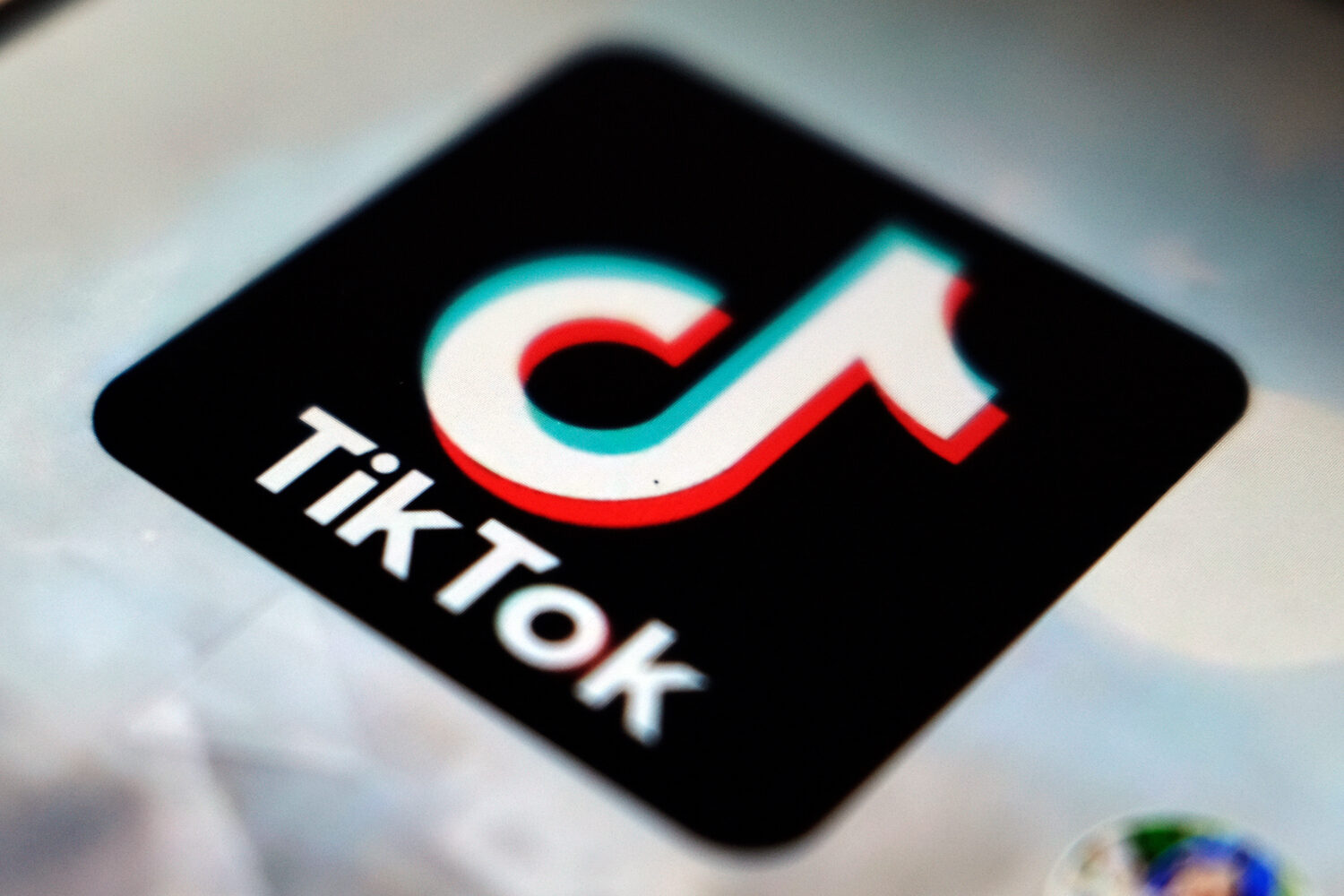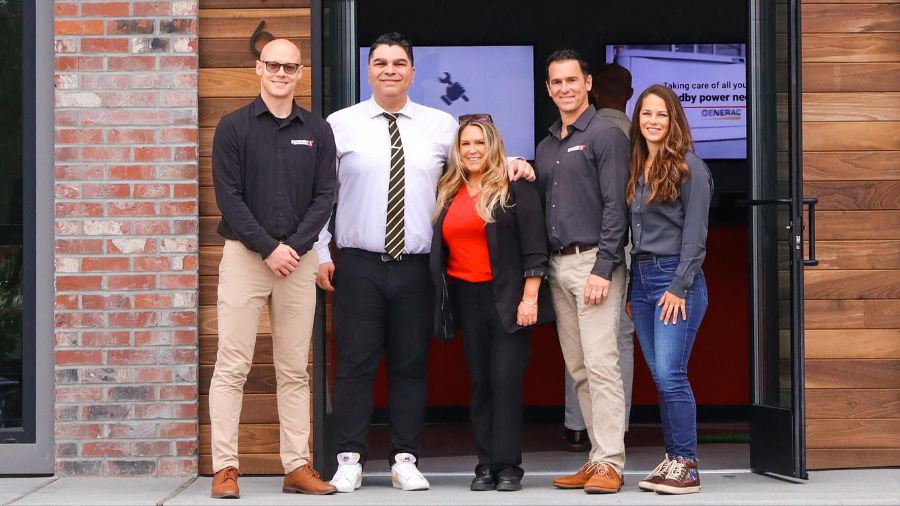‘They just want to be seen’: Latino game developers use PAX West to push for more inclusion
Sep 7, 2025, 5:00 AM

LatinX in Gaming speaks during PAX West. (Photo courtesy of LatinX in Gaming)
(Photo courtesy of LatinX in Gaming)
Seattle just hosted the PAX West video game festival. But for many, the event wasn’t just about gaming, it also highlighted concerns over U.S. immigration policies.
LatinX in Gaming is a non-profit connecting and uplifting Latino talent across the gaming world.
At last week’s PAX West in Seattle, President Elaine Gomez spotlighted their mission, funding emerging Latino developers and removing everyday barriers. One recent example? Helping a Cuban game developer pay for internet access, a costly but essential tool in a country where it’s anything but accessible.
“You take that for granted here in the U.S.,” Gomez told KIRO Newsradio. “Like right here at PAX, we’re in this building, there’s free WiFi, but over there, it’s a different story.”
But Gomez said tough U.S. immigration policies kept many Latino gamers and developers from making the trip to Seattle this year.
“They’re scared to visit the U.S. because of the situation that’s happening when all they want to do is pursue a career, or all they want to do is find an opportunity for their work so they can elevate themselves and support their families,” Gomez said.
And, she said, many Latinos in the industry have seen a growing backlash, including online attacks and constant trolling
“I think that people have gotten a lot braver in the way that they want to share their hate, really push us out, remove us from conversations, or silence us from having a voice and having opinions about what’s going on,” Gomez said.
75% of gamers are white
According to the Pew Research Center, three-quarters of all gamers are white. The second highest demographic is Hispanic at 29%.
Gomez emphasized that non-white gamers infuse every game they create with rich cultural experiences and fresh perspectives, shaping storylines, influencing in-game choices, and even redefining visual aesthetics.
“It’s like reading a book or watching a movie, like you take what you want from it,” Gomez said. “It’s cool to experience it. And games are the same thing.”
For many Latino gamers, she said, the desire is simple yet powerful: They just want to feel seen, heard, and supported.
“Being able to find funding for their project and getting, like, critical acclaim globally, like these are really important, big deal things,” Gomez said. “And if we don’t push through the noise and kind of like, figure out that it’s a them problem, not an us problem, then that’s all that we need to keep creating the impact.”
Follow Luke Duecy on X. Read more of his stories here. Submit news tips here.
















